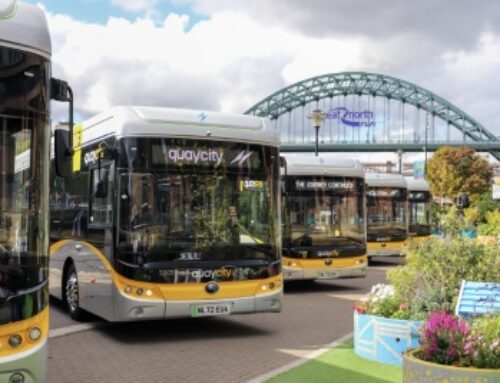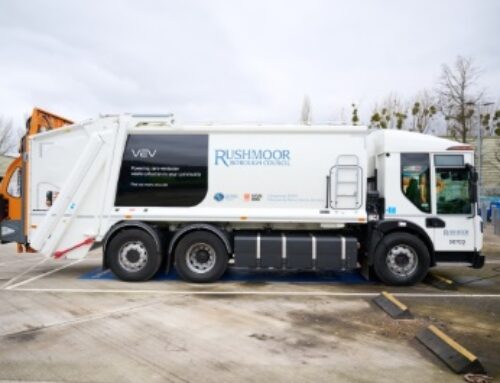Mercedes outlines future truck fuel strategy
 Mercedes-Benz has abandoned hybrid truck drivelines in favour of efficient diesels and all-electric vehicles, according to Stefan Buchner, the head of the manufacturer’s truck division.
Mercedes-Benz has abandoned hybrid truck drivelines in favour of efficient diesels and all-electric vehicles, according to Stefan Buchner, the head of the manufacturer’s truck division.
Speaking at a pre-IAA Show press conference in Frankfurt, he said: “Of course, we’re also thinking about alternative drives. We still don’t see a hybrid truck in there. Because with our diesel engine we’re already in a similar range of fuel savings and thus CO2 reduction… And in purely economic terms this pays off much more for our customers.”
Daimler, Mercedes-Benz’s parent, had previously been an advocate of hybrid drivelines, with the hybrid version of the Fuso Canter truck having been offered for sale in Europe since late 2016.
Stefan Buchner explained: “With a little effort we can achieve great savings by further improving not only the powertrain, but the overall vehicle – including aerodynamics. For example, we could easily get rid of wind catchers like the exterior mirrors.
“Another point of departure for more efficiency is intelligence. We already support our drivers today with Predictive Powertrain Control. That means the truck proactively brakes and accelerates. So far, this is only possible on highways and major roads.
“A next possible step would be for the truck to process high-resolution road maps to use Predictive Powertrain Control in the inner city as well. Or imagine the truck recognises traffic signs and engages the appropriate shifting strategy.”
 On electric trucks, he said: “We’re fully concentrating on the electric truck. You know our eActros innovation fleet. The first vehicles are certified, and we will report on them again during the year.”
On electric trucks, he said: “We’re fully concentrating on the electric truck. You know our eActros innovation fleet. The first vehicles are certified, and we will report on them again during the year.”
Defending the safety record of heavy trucks, Stefan Buchner said: “Because we take the topic very seriously, the number of people killed by truck accidents has fallen by over 60 per cent over the past three decades.
“For the future, above all else, we now face two questions: How can we protect the weakest participant in traffic – the human being – even better? And how can we take some burden off the driver – particularly in long-hauls and on long, monotonous routes – and thereby further increase safety?
“The answer to the first question is to give the driver a better field of vision. This can be done by removing existing visual barriers – we think once again of those very large exterior mirrors. If we then also intelligently link data from sensors and radar systems, we can further increase the field of view: The driver could then see to the end of the trailer – and not as before only the first third.
“With intelligently linked sensor and radar data, the truck of the future can protect pedestrians even better in dangerous situations: The vehicle no longer just warns, but independently initiates full emergency braking.
“Let’s go now to the highway. Here it’s about preventing rear-end collisions. And the same applies to unintentionally leaving the lane, for example, due to tiredness.
“The solution again lies in intelligent assistance systems. That means we turn over the wheel to the truck to take the burden off the driver on monotonous stretches. In doing so, we no longer just allow the truck to accelerate and brake – we also let it keep its own distance and drive curves. I think you know where I’m going with my remarks: Level Two of automated driving. In our mind that is definitely possible in the next truck generation.”
On the subject of connectivity, Mercedes was already giving some trucks software updates ‘over the air’ and the same wireless technology could also be used to, for example, change the maximum permitted speed of a truck as it crossed an international border or to disable it if it was stolen.
To make driving more attractive, it should be possible to make operating systems ‘intuitive’ in the same way that smartphones were now.
Stefan Buchner concluded: “The truck of the future will answer many open questions. It will be more efficient, safer and more reliable than ever… Above all it will score points with intelligence and inner values. That may be the key difference from before.”











